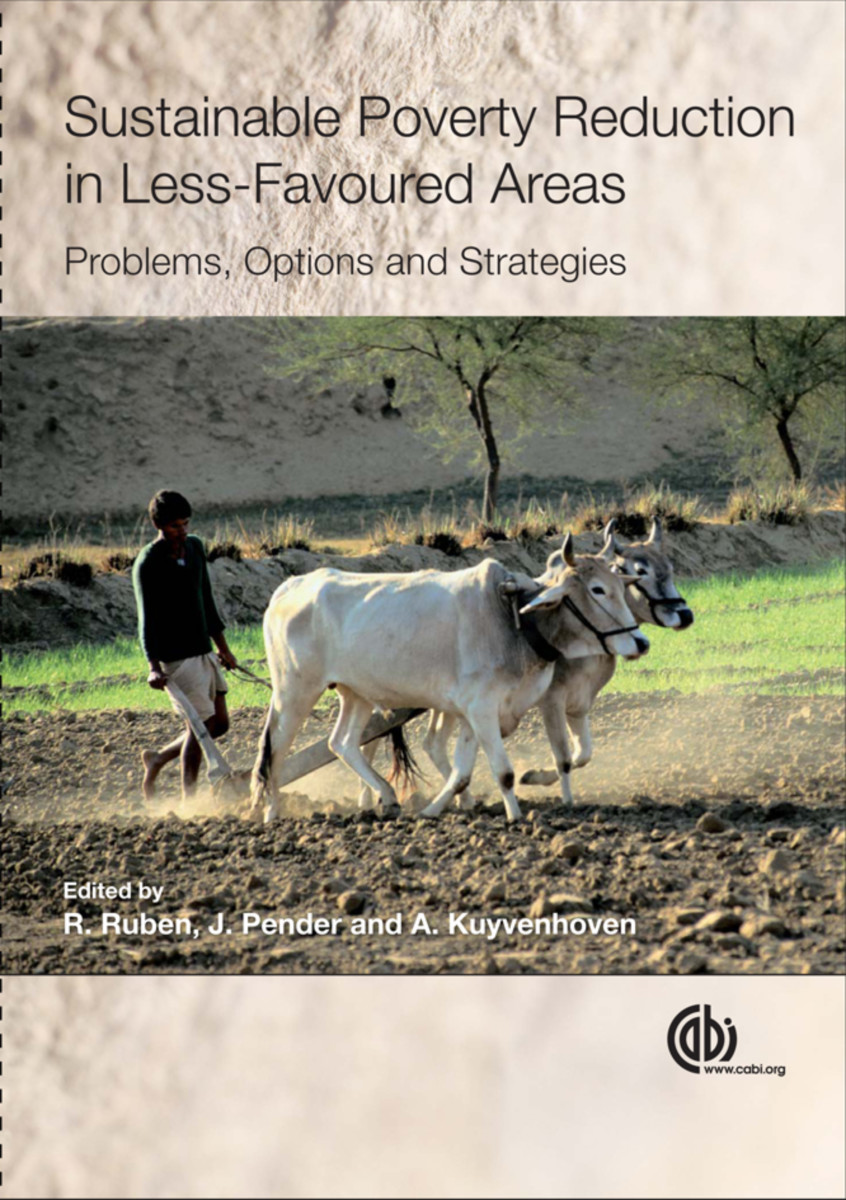Sustainable Poverty Reduction in Less Favoured Areas
- Publisher
CABI - Published
19th September 2007 - ISBN 9781845932770
- Language English
- Pages 464 pp.
- Size 6.875" x 9.75"
Less-favored areas with limited agricultural potential or difficult access conditions, support 40% of the world's rural population suffering from chronic poverty. While agricultural innovations and rural development programs have begun to be implemented within developing countries, they do not address the specific obstacles faced by this large population. Instead, a targeted approach is needed to identify different resource management strategies for particular types of households and communities as well as creating balanced investments aimed at sustainable intensification of rural livelihoods. Such efforts have been the focus of the research program on Regional Food Security Policies for Natural Resource Management and Sustainable Economies (RESPONSE). Through the study of less-favored areas in Africa, Latin America, and South and East Asia, development pathways allowing for the careful adjustment of resource use strategies at the field, farm-household and village level are explored.
* Designing and evaluating alternatives for more sustainable natural resource management
* Dimensions of vulnerability of livelihoods
* Market imperfections
* Rural development and sustainable land use
* Resource use efficiency on own and sharecropped plots in Northern Ethiopia
* Food Security
* Changing gender roles in household food security
* Does social capital matter in vegetable markets?
* Making markets work for the poor: the challenge in the age of globalisation
* Market access, agricultural productivity and allocative efficiency
* Land and labour market participation decisions under imperfect markets
* Land and labour allocation decisions in the shift from subsistence to commercial agriculture
* Effects of deregulation of the rice market on farm prices in China
* Consequences of abolition of the Multi-Fibre Arrangement import quotas on the apparel industry of Bangladesh
* Poverty targeting with heterogeneous endowments
* Less-favoured areas: looking beyond agriculture towards ecosystem services
* Livelihood strategies, policies and sustainable poverty reduction in LFAs: a dynamic perspective


